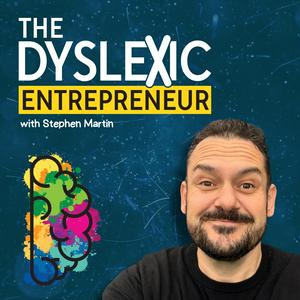In this honest and reflective episode of The Truth About Dyslexia, Stephen opens up about overwhelm at work, navigating rapid AI disruption, and what it really means to build a stable, fulfilling life as a neurodiverse entrepreneur.
Takeaways
Overwhelm is temporary — even when it feels permanent
AI disruption is real, but panic decisions aren’t the answer
Avoid “burn it down” thinking
Define success by feelings, not numbers
Stability is a valid goal
You don’t need to be a billionaire to be happy
Dyslexia podcast, overwhelm at work, neurodiverse entrepreneur, AI and the future of work, AI disruption in web design, creative burnout, entrepreneur anxiety, dyslexic thinking patterns, business pivot strategy, midlife career reflection, mindset for entrepreneurs, meditation for overwhelm, breathwork for anxiety, AI impact on copywriting, AI impact on animation, safe and consistent income, redefining success, neurodiversity in business, ADHD, adults with dyslexia, support for adults.
Join the club
rightbrainresetters.com
Get 20% off your first order
addednutrition.com
If you want to find out more visit:
truthaboutdyslexia.com
Join our Facebook Group
facebook.com/groups/adultdyslexia


